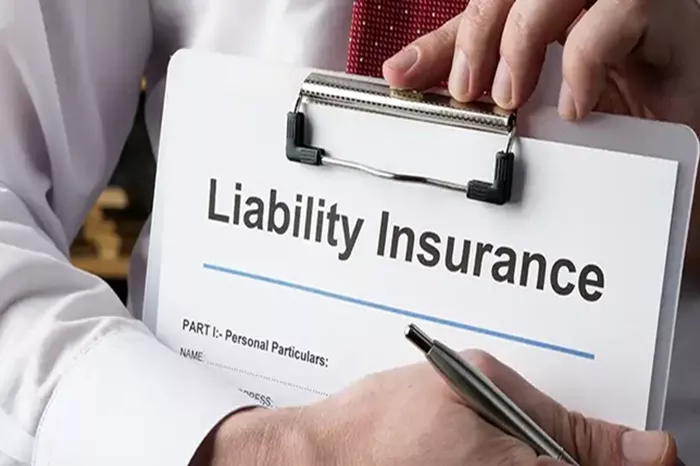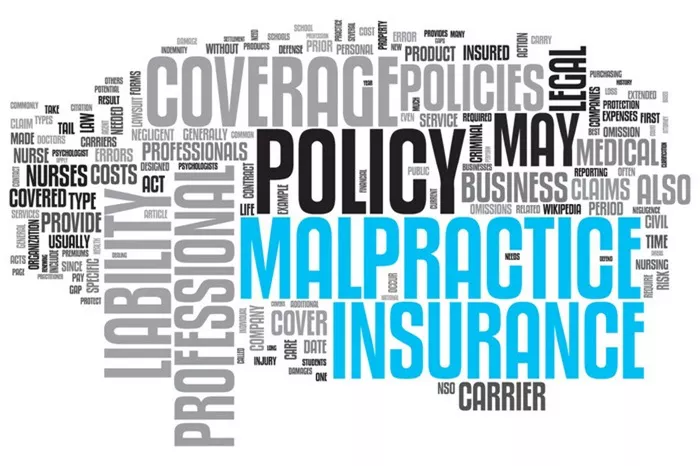Liability insurance is an essential component of risk management for individuals and businesses alike. It provides protection against claims resulting from injuries and damages to people and property. In this comprehensive article, we will explore various aspects of liability insurance, using examples to illustrate its importance and functionality.
Introduction
In today’s litigious society, understanding liability insurance is crucial. This type of insurance is designed to protect policyholders from the financial burden associated with legal claims. But what exactly is an example of liability insurance? Throughout this article, we will delve into the different types of liability insurance, their applications, and why they are indispensable for both individuals and businesses.
Types of Liability Insurance
Liability insurance comes in various forms, each tailored to address specific risks. The primary types of liability insurance include general liability insurance, professional liability insurance, product liability insurance, and employers’ liability insurance. Each type serves a unique purpose and provides coverage for different scenarios.
General Liability Insurance
General liability insurance, often referred to as commercial general liability (CGL) insurance, is one of the most common types of liability insurance. It offers broad protection against claims of bodily injury, property damage, and personal injury (such as slander or libel) that can arise from business operations.
For example, consider a retail store. If a customer slips and falls within the premises, sustaining injuries, the store owner could be held liable. General liability insurance would cover the medical expenses, legal fees, and any settlements or judgments resulting from the lawsuit.
Professional Liability Insurance
Professional liability insurance, also known as errors and omissions (E&O) insurance, is crucial for individuals and businesses providing professional services. This type of insurance protects against claims arising from professional mistakes, negligence, or failure to deliver services as promised.
An example of professional liability insurance in action can be seen in the healthcare industry. A doctor might face a malpractice lawsuit if a patient believes they received substandard care. Professional liability insurance would cover the legal costs and any damages awarded to the patient.
Product Liability Insurance
Product liability insurance is essential for businesses that manufacture, distribute, or sell products. It provides coverage against claims arising from injuries or damages caused by defective or unsafe products.
Consider a toy manufacturer. If a child is injured due to a design flaw in one of the toys, the parents might sue the manufacturer. Product liability insurance would cover the legal expenses and any compensation awarded to the injured party.
Employers’ Liability Insurance
Employers’ liability insurance protects businesses against claims made by employees who suffer work-related injuries or illnesses. This type of insurance is often bundled with workers’ compensation insurance but provides additional coverage beyond what workers’ comp offers.
For instance, if an employee develops a chronic illness due to prolonged exposure to hazardous materials at work, they might file a lawsuit against their employer. Employers’ liability insurance would cover the legal costs and any settlements or judgments.
The Importance of Liability Insurance
Liability insurance is crucial for several reasons. It helps protect the financial stability of individuals and businesses, ensures compliance with legal requirements, and enhances credibility and trust with clients and customers.
Financial Protection
One of the primary reasons for obtaining liability insurance is to safeguard financial assets. Legal claims can be incredibly costly, encompassing legal fees, court costs, settlements, and judgments. Without liability insurance, these expenses could cripple a business or individual financially.
Legal Compliance
In many industries, having liability insurance is not just a good business practice but a legal requirement. For example, medical professionals are often required to carry malpractice insurance, and businesses in certain sectors must have general liability insurance to operate legally.
Credibility and Trust
Liability insurance also enhances the credibility of a business. Clients and customers are more likely to trust and engage with a business that demonstrates responsibility by having the necessary insurance coverage. It shows that the business is prepared to handle any issues that may arise, providing peace of mind to clients and customers.
Examples of Liability Insurance in Different Industries
To further illustrate the importance and application of liability insurance, let’s explore examples from various industries.
Construction Industry
The construction industry is fraught with risks, making liability insurance indispensable. Construction companies typically carry general liability insurance to cover accidents that may occur on the job site, such as a worker or third-party injury. Additionally, professional liability insurance might be necessary for design professionals like architects and engineers.
For instance, if a construction worker accidentally damages a neighboring property while operating heavy machinery, general liability insurance would cover the cost of repairs and any legal fees associated with the incident.
Healthcare Industry
In the healthcare sector, professional liability insurance (malpractice insurance) is crucial. Medical professionals, including doctors, nurses, and therapists, are at risk of being sued for malpractice. This insurance covers legal expenses and any damages awarded to plaintiffs.
Consider a scenario where a surgeon is accused of making a surgical error that resulted in complications for the patient. Malpractice insurance would cover the surgeon’s defense costs and any settlement or judgment, ensuring that the surgeon is financially protected.
See Also: Is Professional Liability Insurance Tax Deductible?
Retail Industry
Retail businesses face unique risks that necessitate liability insurance. General liability insurance is essential for covering injuries that may occur on the premises, such as slip-and-fall accidents.
For example, if a customer slips on a wet floor in a supermarket and sustains injuries, the supermarket’s general liability insurance would cover the medical expenses, legal fees, and any compensation awarded to the customer.
Technology Industry
In the technology sector, professional liability insurance (often referred to as technology E&O insurance) is vital. This type of insurance covers claims arising from errors, omissions, or negligence in the provision of technology services or products.
For instance, if a software developer delivers a flawed product that causes financial losses for a client, the client might sue for damages. Technology E&O insurance would cover the legal costs and any compensation awarded to the client.
Manufacturing Industry
Manufacturers need product liability insurance to protect against claims related to defective products. This insurance covers legal expenses, settlements, and judgments arising from injuries or damages caused by the products they manufacture.
Consider a scenario where a consumer is injured by a malfunctioning appliance. The manufacturer could be held liable for the injury, and product liability insurance would cover the associated costs.
How to Choose the Right Liability Insurance
Selecting the appropriate liability insurance requires careful consideration of several factors, including the nature of the business, potential risks, and legal requirements. Here are some steps to guide the decision-making process.
Assessing Risks
The first step in choosing the right liability insurance is to assess the specific risks associated with the business or professional practice. This involves identifying potential sources of liability, such as physical injuries, property damage, professional errors, or product defects.
Understanding Coverage Needs
Once the risks have been identified, it’s essential to understand the coverage needs. Different types of liability insurance provide different levels of protection. For instance, a business that manufactures products will need product liability insurance, while a service provider might require professional liability insurance.
Legal Requirements
It’s also crucial to consider any legal requirements for liability insurance. Certain industries and professions have mandatory insurance requirements. Ensuring compliance with these regulations is vital to avoid legal penalties and maintain the ability to operate.
Comparing Insurance Providers
When selecting liability insurance, it’s important to compare different insurance providers. Factors to consider include the reputation of the insurer, the scope of coverage offered, the cost of premiums, and the claims process. It’s advisable to obtain quotes from multiple insurers and carefully review the policy terms and conditions.
Seeking Professional Advice
Given the complexities of liability insurance, seeking professional advice can be highly beneficial. Insurance brokers and advisors can provide valuable insights and help tailor insurance solutions to meet specific needs.
Common Misconceptions About Liability Insurance
Despite its importance, there are several misconceptions about liability insurance. Addressing these misconceptions can help individuals and businesses make informed decisions about their insurance needs.
Misconception 1: Liability Insurance Is Only for Large Businesses
One common misconception is that liability insurance is only necessary for large businesses. In reality, liability insurance is crucial for businesses of all sizes. Small businesses are often more vulnerable to financial devastation from legal claims, making liability insurance even more essential.
Misconception 2: Personal Liability Is Not Necessary
Another misconception is that personal liability insurance is not necessary. However, individuals can also face significant legal claims. Personal liability insurance, often included in homeowners or renters insurance policies, provides protection against claims arising from personal actions or accidents.
Misconception 3: General Liability Insurance Covers All Risks
Some business owners mistakenly believe that general liability insurance covers all possible risks. While general liability insurance provides broad coverage, it does not cover every scenario. Specific risks, such as professional errors or product defects, require additional insurance policies.
Misconception 4: Liability Insurance Is Too Expensive
Cost concerns often deter individuals and businesses from obtaining liability insurance. However, the cost of liability insurance is generally much lower than the potential expenses associated with legal claims. Additionally, many insurance providers offer flexible payment options to make coverage more affordable.
Conclusion
Liability insurance is a fundamental component of risk management for individuals and businesses. It provides essential protection against legal claims arising from injuries, damages, or professional errors. By understanding the different types of liability insurance, assessing specific risks, and selecting appropriate coverage, individuals and businesses can safeguard their financial stability and ensure compliance with legal requirements. Whether in the construction, healthcare, retail, technology, or manufacturing industries, liability insurance plays a vital role in mitigating risks and promoting long-term success.






















